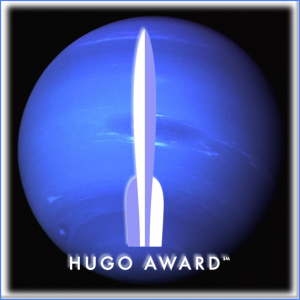(Disclaimer: I couldn't watch the Doctor Who Christmas special, "Twice Upon a Time." Season 11 is available on Amazon Prime--all except the Christmas special, of course. I visited the BBC America website, but apparently that channel isn't carried by my cable provider, so I couldn't watch it there. I'm not willing to watch the episode illegally, so I suppose I'll have to leave it off my ballot.)
This category, to be frank, is pretty mediocre this year, with the exception of the Black Mirror episode. I watched it for a second time and it holds up better than I remembered, but it doesn't come close to the excellent Emmy winner from last year, "San Junipero."
The nominees:
The Good Place, "The Trolley Problem" and "Michael's Gambit"
Clipping, "The Deep"
Doctor Who, "Twice Upon a Time"
Black Mirror, "USS Callister"
Star Trek Discovery, "Magic To Make the Sanest Man Go Mad"
My ballot:
1) Black Mirror: "USS Callister." This is a deconstruction of toxic masculinity wrapped up in the persona of a sociopathic white male nerd. It's a takeoff of the original Star Trek, here called Space Fleet, with Robert Daly the Chief Technical Officer of Infinity, an online game. This turns dark very quickly, as the "Captain Daly" of Robert's private version of the game reveals him to be the tyrannical god of his own universe, complete with digital copies of his co-workers to manipulate and terrorize.
Watching this for the second time, I noticed that with the exception of Walton, his boss in the real-life version of Infinity who took over Daly's original concepts and didn't give him the credit he apparently did deserve, every one of the imprisoned co-workers is a woman and/or person of color. If that isn't a commentary on Silicon Valley nerd male entitlement, I don't know what is.
2) Star Trek Discovery: "Magic To Make the Sanest Man Go Mad." This would have taken the No. 1 spot, except for the terrible ending. This prequel to the original Star Trek used a technobabble time-loop plot to reveal a good deal about the characters and this iteration of the show. Unfortunately, they tried to update Harcourt Fenton Mudd by turning him into a nasty, murderous con man instead of the bumbling half-baked con artist of the original, only to attempt--and fail miserably--to revert the character to his original persona in the final scene. Since Harry Mudd murdered all the crewmembers of Discovery fifty-some times over in his attempt to hijack the starship's advanced drive and sell it to the Klingons (hence the 30-minute repeated time loop) he should have been tried for 20,000+ first-degree murder charges. And they just let him go? I'm sorry, but forcing him to stay with Stella, his wife--accompanied by her daddy--who has been pursuing him, is nowhere near the punishment he deserved. Come on, people.
3) Clipping, "The Deep" (song). Unfortunately, I'm just not a hip-hop person. This seemed to have a pretty SFnal concept, but I'm not enough into that kind of music for it to make much of an impression on me. However, as meh as this was, it's still better than 5) and 6), which I have deliberately placed below--
4) No Award
5) The Good Place, "The Trolley Problem" and 6) The Good Place, "Michael's Gambit."
Bah. I'm going to be a get-off-my-lawn curmudgeon about this, because I don't understand why this show is here at all. If I'm not a hip-hop person, I'm even more not a sitcom person, which is what The Good Place is. It doesn't have a laugh track, and it does have Ted Danson, who I will admit is quite good in his fallen-angel/Lucifer role. However, those are its only two redeeming qualities, as far as I am concerned. The other characters are so shrill and annoying they made my teeth ache. I am sobbing over episodes of The Expanse, The Handmaid's Tale, and Luke Cage, among others, that got passed over for this. Please, Hugo voters, let's not do this again.
Tags:

